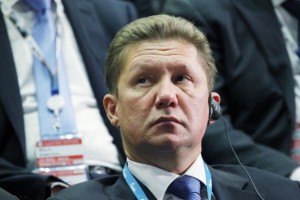

Follow us on:  
|


Alexei Miller, chairman of the management committee of Gazprom JSC. [Getty Images]
The project has seen opposition from FIFA President Sepp Blatter.
The planned Unified Football Championship is seen by many clubs as a major cash incentive that would attract sponsors and TV revenues to help clubs meet UEFA financial fair play rules.
Gazprom is the financial backer of Russian champions Zenit St. Petersburg and a UEFA Champions League sponsor.
Its head Alexei Miller, a close ally of President Vladimir Putin, met with representatives of 14 Russian top-flight clubs and one Ukrainian side to discuss the plans on Monday.
“We think it is realistic to hold the championship from the autumn of 2014 to the spring of 2015,” Miller was quoted by Ria Novosti.
“But if the time to reach agreements drags on, then we plan to hold the championship from autumn 2015 to spring 2016.”
FIFA President Blatter’s declaration last month that creating the league is “impossible,” plus subsequent opposition from the Russian and Ukrainian FA’s, had appeared to kill off the scheme, but Miller insisted it was still possible.
“Of course the approval of UEFA is required, and we will definitely do that,” he said.
“We can already say with confidence that there will be an interesting discussion. Firstly, this is because of the fair play requirements imposed by UEFA. I am sure that if the United Championship is created, this requirement will be fully conformed to.”
The prize fund would be €1 billion, comparable to the Champions League, Miller added.
From next season, UEFA will be able to ban clubs from European competitions if they breach the fair play rules by posting vast losses over three years.
The Unified Football Championship, previously known as the Super League, has been compared to a revived Soviet championship.
Former Russia coach Valery Gazzaev is overseeing its formulation and has said it would consist of two divisions of 18 teams.
A presentation shown at Monday’s meeting indicates the league would be run by a “non-commercial organisation” headed by a president with a management council composed of Russian and Ukrainian representatives.
Who would own the organisation was not immediately clear.
Source: Agencies